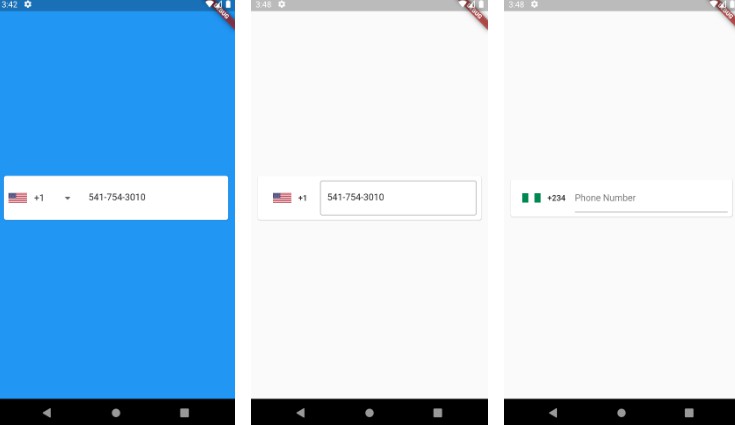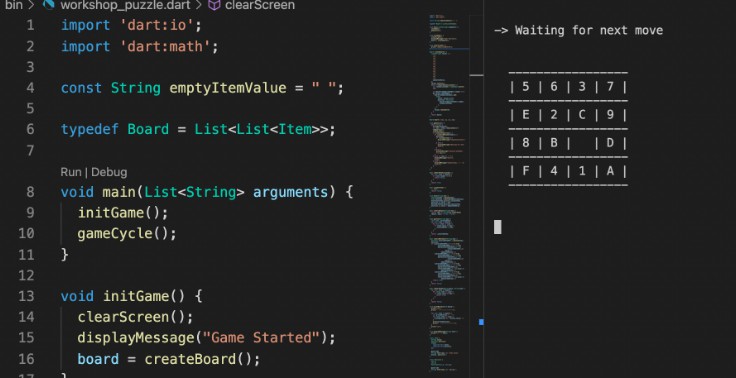datacollection
this will help to generate the data collection in *.g.dart file from api response
usage
Add the generator to your dev dependencies
pubspec.yaml
dependencies:
datacollection: any
json_annotation: any
logger: any # log any value
dio: any # for handle http client
retrofit: any # for generation dio route
dev_dependencies:
datacollection_generator: any
http_mock_adapter: any
retrofit_generator: any
build_runner: '>2.3.0 <4.0.0'
json_serializable: '>4.4.0'
dart annotation
example
create a student model and named student.dart
import 'package:datacollection/datacollection.dart';
import 'package:json_annotation/json_annotation.dart';
part 'student.g.dart';
@JsonSerializable()
@paginations
@collections
@response
class Student {
final String? name;
final num? grade;
final num? score;
Student({
this.name,
this.grade,
this.score,
});
factory Student.fromJson(Map<String, dynamic> json) =>
_$StudentFromJson(json);
Map<String, dynamic> toJson() => _$StudentToJson(this);
factory Student.fromMap(Map<String, dynamic> map) => _$StudentFromJson(map);
Map<String, dynamic> toMap() => _$StudentToJson(this);
}
create a post model and name post.dart
import 'package:collection/collection.dart';
import 'package:dio/dio.dart';
import 'package:json_annotation/json_annotation.dart';
import 'package:datacollection/datacollection.dart';
import 'package:retrofit/retrofit.dart';
part 'post.g.dart';
@RestApi(baseUrl: 'https://mylekha.app/api/v1/app/')
abstract class ClientPost {
factory ClientPost(Dio dio, {String baseUrl}) = _ClientPost;
@GET("/posts")
Future<PaginationResponse<Post>> getPosts();
@GET("/posts/{id}")
Future<HttpResponse<Post>> getPost(@Path("id") int id);
}
@JsonSerializable()
@datacollections
class Post {
@JsonKey(defaultValue: null)
final int? id;
@JsonKey(defaultValue: "")
final String? slug;
@JsonKey(defaultValue: "")
final String? title;
@JsonKey(defaultValue: "")
final String? content; // post content
@JsonKey(defaultValue: "post")
final String? type; // post type
@JsonKey(defaultValue: null)
final String? link; // post link for video or audio
@JsonKey(defaultValue: <String>[])
final List<String>? images;
@JsonKey(defaultValue: "en_US")
final String? locale;
Post({
this.id,
this.slug,
this.title,
this.content,
this.type,
this.link,
this.images,
this.locale,
});
factory Post.fromJson(Map<String, dynamic> json) => _$PostFromJson(json);
Map<String, dynamic> toJson() => _$PostToJson(this);
factory Post.fromMap(Map<String, dynamic> map) => _$PostFromJson(map);
Map<String, dynamic> toMap() => _$PostToJson(this);
Post copyWith({
int? id,
String? slug,
String? title,
String? content,
String? type,
String? link,
List<String>? images,
String? locale,
}) {
return Post(
id: id ?? this.id,
slug: slug ?? this.slug,
title: title ?? this.title,
content: content ?? this.content,
type: type ?? this.type,
link: link ?? this.link,
images: images ?? this.images,
locale: locale ?? this.locale,
);
}
@override
String toString() {
return 'Post(id: $id, slug: $slug, title: $title, content: $content, type: $type, link: $link, images: $images, locale: $locale)';
}
@override
bool operator ==(Object other) {
if (identical(this, other)) return true;
final listEquals = const DeepCollectionEquality().equals;
return other is Post &&
other.id == id &&
other.slug == slug &&
other.title == title &&
other.content == content &&
other.type == type &&
other.link == link &&
listEquals(other.images, images) &&
other.locale == locale;
}
@override
int get hashCode {
return id.hashCode ^
slug.hashCode ^
title.hashCode ^
content.hashCode ^
type.hashCode ^
link.hashCode ^
images.hashCode ^
locale.hashCode;
}
}
then run the generator
# dart
pub run build_runner build
# flutter
flutter pub run build_runner build
Use it
void main() {
var data = <Map<String, dynamic>>[
...List.generate(10, (i) => {"name": "mr.$i", "age": i, "pass": i.isEven})
.toList()
];
var collection = PaginationResponse(data: data);
expect(
List<Map<String, dynamic>>,
(collection.value.runtimeType),
reason:
"without T type, collection.value should be list of Map<String, dynamic>",
);
var studentCollection = PaginationResponse<Student>(data: data);
}
annotation
@JsonSerializable()
@datacollections
class User{
}
or
@JsonSerializable()
@DataCollectionAnnotation(
paginations: true,
collections:true,
response: true,
)
class User{
}

